
The Python certification is a kind of training course that helps you master the concepts of the programming language.
This type of certification lets your employer know that you’ve been through intense and in-depth learning, which in turn, allows them to provide you with an opportunity to work with a Python-related programme.
You might be thinking, ‘Why would an employer give a chance to someone with a Python certification, and not with an IT degree?” Well, that’s because you’ll be working on real-world projects and case studies as part of the overall certification courses!
It doesn’t matter if you’re from software engineering, web scraping and automation, web development, data science, or machine learning; you would know that the Python language is one of the most relevant and important languages in the programming industries.
Being one of the most functional programming languages, this is only second to JavaScript when it comes to popularity among all the coders. Due to its versatility and a vast set of frameworks that come with it, mastering this language will definitely help develop your programmer skill sets and land you high-paying jobs.

There are a few places where you can get this coveted certificate, namely, Microsoft and Python Institute. While most of us know just how big of a name Microsoft and its credentials are, let’s move on to Python Institute.
Aside from Microsoft, the Python Institute is probably one of the best places for you to get your certification. In collaboration with Pearson VUE, and set up by Open Education and Development Group (OpenEDG), they promise a range of courses and certifications that equip programmers with various skill sets and concepts regarding the language.
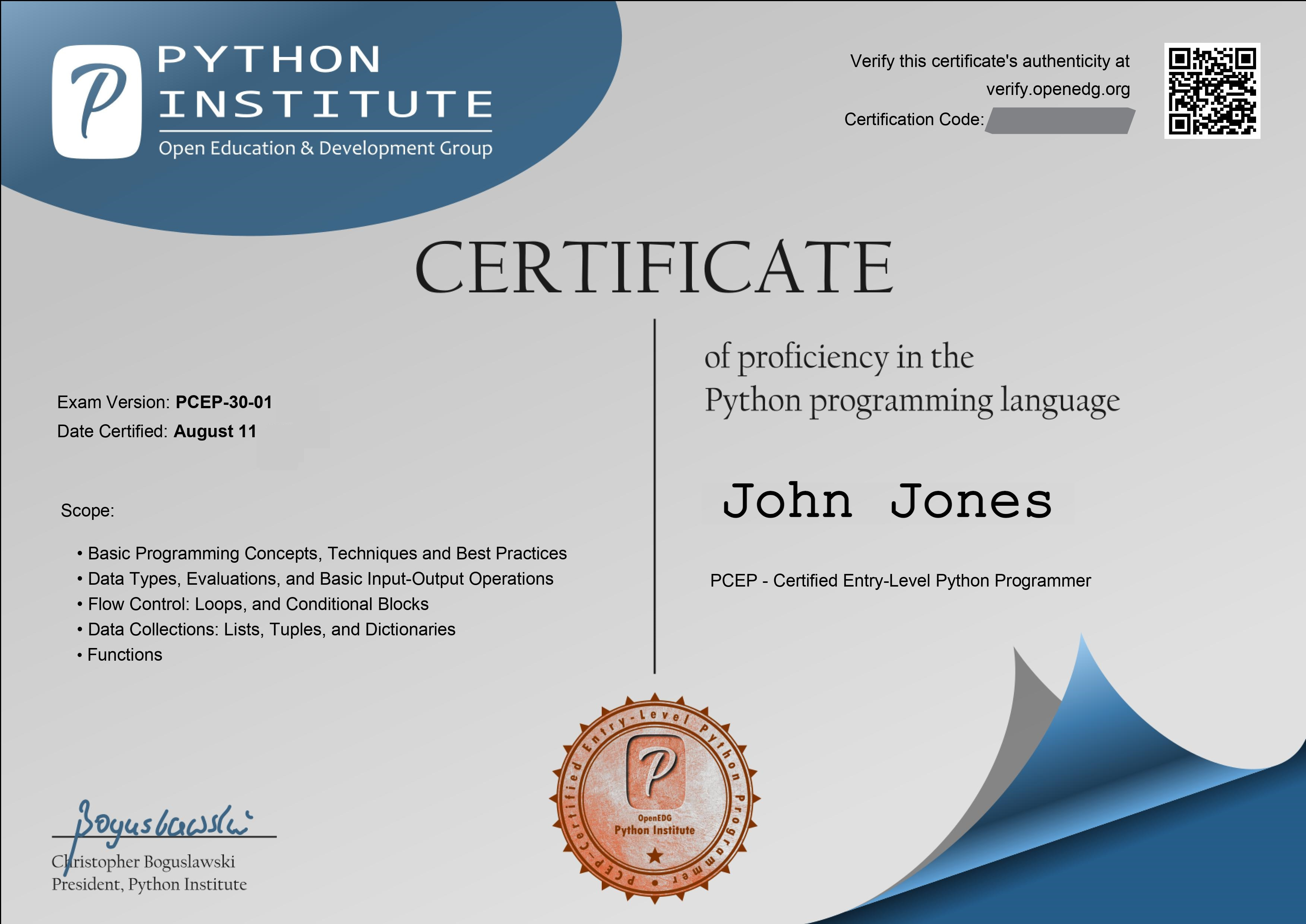
Think of PCEP certification as the first step to building your credentials! This entry-level course helps learners to gain all the fundamental knowledge one needs before proceeding to an intermediate level course.
The details of the exam are as below:
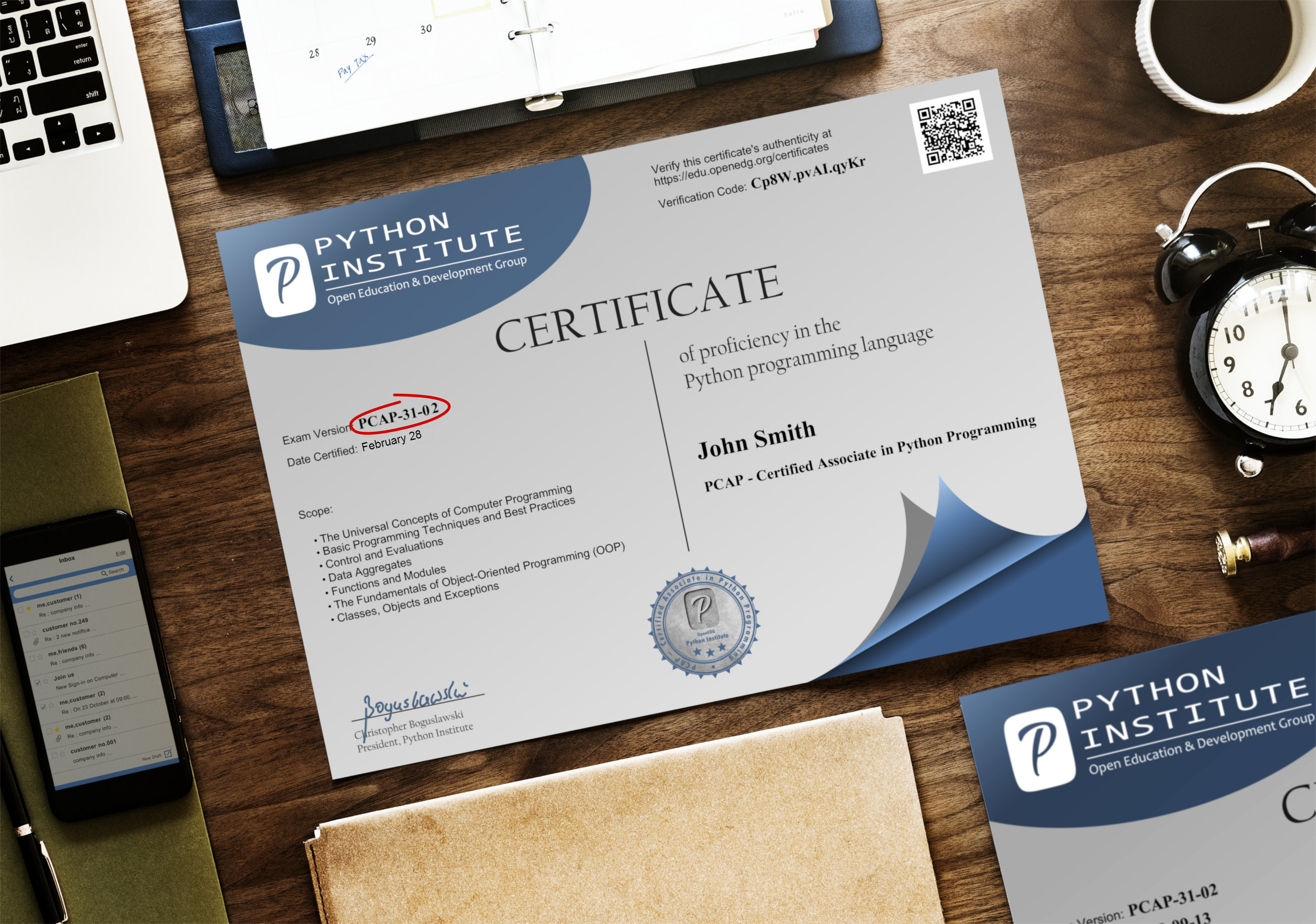
The PCAP certification helps learners to be familiarised with the Python language in general, before proceeding to an advanced programming course and being a competent coder/developer.
Following this course, candidates are able to build confidence in using the language, and help them understand the fundamental notions and techniques employed for object-oriented programming.
The details of the exam are as below:

The PCPP certification is considered the highest level course offered by the Python Institute. This certification is split into two, namely PCPP-1 and PCPP-2. As learners go through these courses, they’ll be able to accomplish programming tasks related to advanced-level coding using the Python language.
Upon completing PCPP1, the learner will be proven to have the credential equivalent of an advanced Python developer worldwide.
The details of the exam are as below:
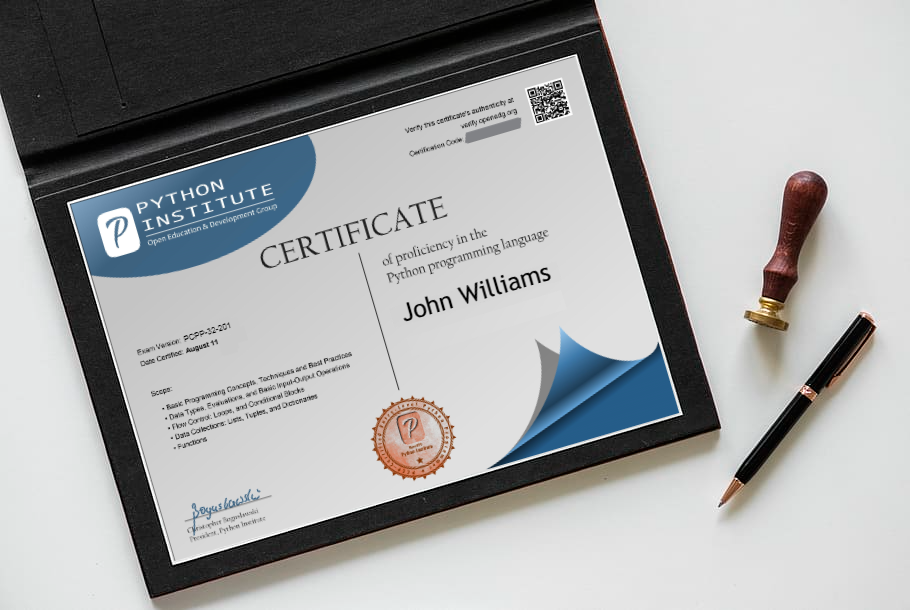
Individuals certified with a PCPP2 are considered to have acquired the highest level of expertise in the language and are recognised as professional programmers/developers.
With the credentials of a PCPP2 certificate, the candidates are expected to be able to automate processes using Python and create tools, systems, and frameworks using Python and related technologies.
The details of the exam are as below:
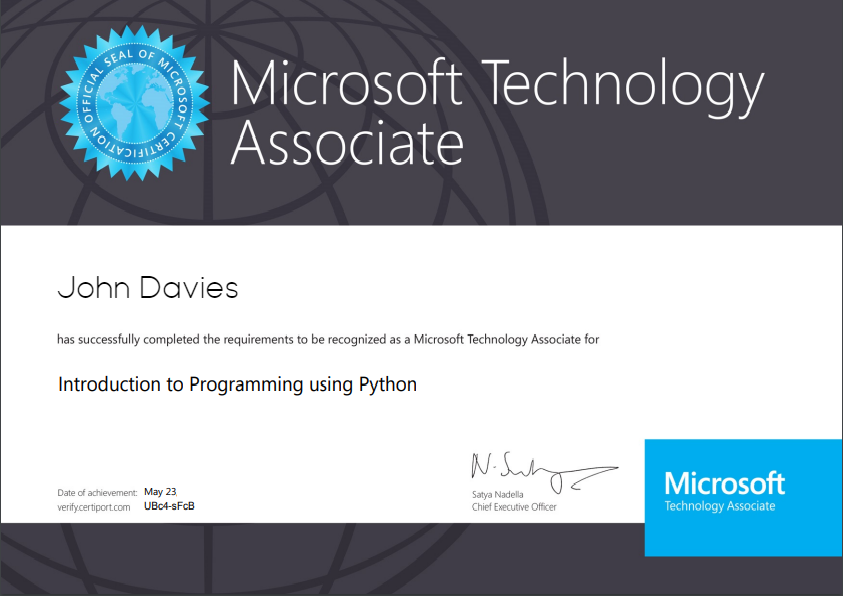
As suggested by the name, the Microsoft Python Certification Exam (also known as Microsoft Technology Associate 98-381: Introduction to Programming Using Python) is issued by one of the largest tech companies in the world. Upon the completion of this course, learners will also be awarded the Microsoft Technical Associate (MTA) credential.
The MTA 98-391 is recognised worldwide by professional programmers and companies, as the course covers the general purpose of Python programming language, and related technologies.
The details of the exam are as below:
Now that we’ve covered the available courses in full detail, we’ve compiled the key information into a handy table below for your easy reference too!
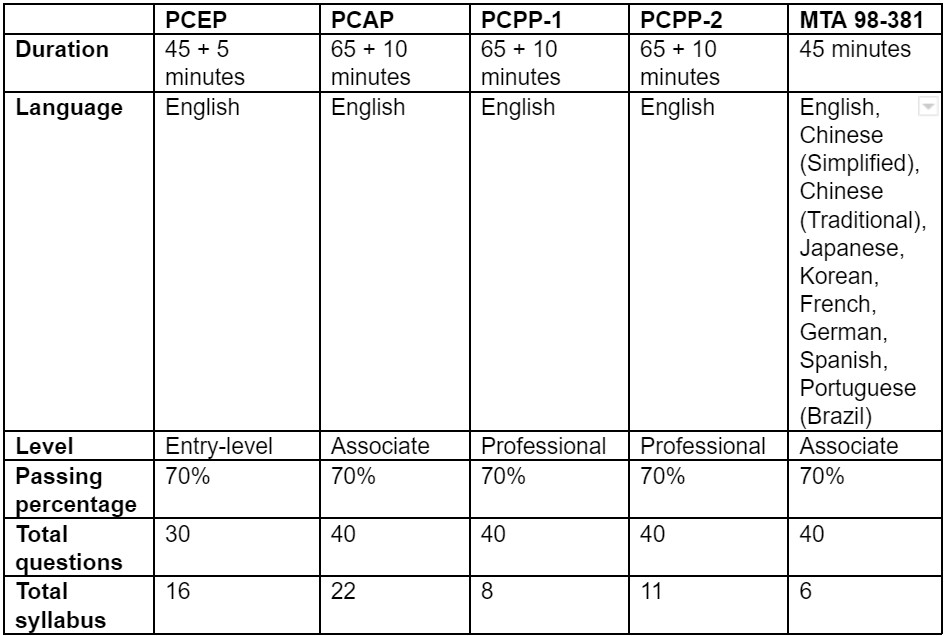
It doesn’t matter if you’re a novice, an associate, or even an expert in the field of programming; we understand that it can be nerve-wracking when we’re to sit for an examination. And that’s completely normal! Who wouldn’t be nervous to sit for a final?
No worries, we’re here to give you some tips and tricks. For starters, there are tonnes of books out there that are good for learning Python, even when you have no prior experience using the language, namely, ‘Starting Out with Python’, ‘Python for Everybody’, and ‘Learn Python the Hard Way’. And in case there’s any term that’s hard to understand, there’ll always be videos on YouTube to guide you through the problems.
There are also many practice tests online, where they prep you with the most important and hot questions for these Python certifications. Doing them is crucial because you’ll probably come across some similar ones, and you get to apply the concepts multiple times before going for the actual exam!
Having good credentials by owning the Python certificate is definitely crucial to becoming a successful programmer/developer. However, even though you’re now fluent in the language, it’s still important to have some experience in the related field.
This is why you should make use of your time and skills acquired from this certification to create a project portfolio. Showing what you’ve learned and how you applied these skills to a project will impress employers of your ability as a capable programmer/developer!